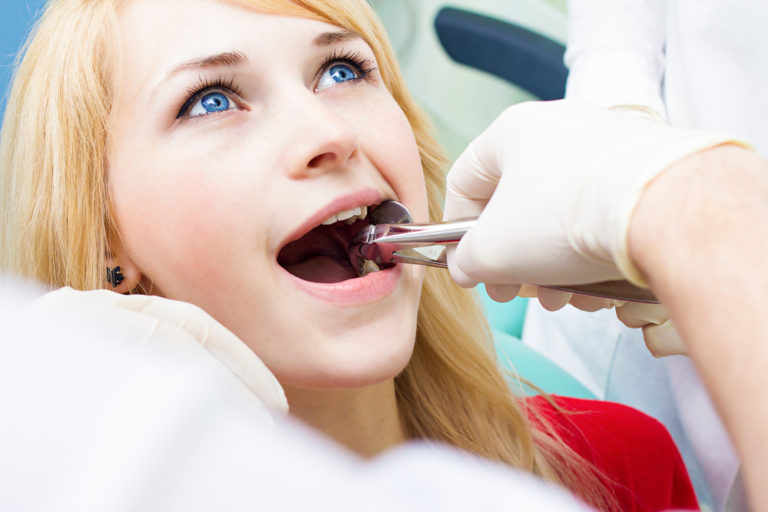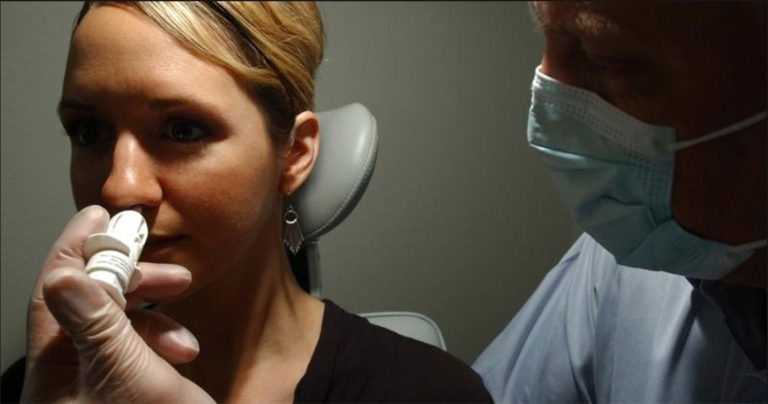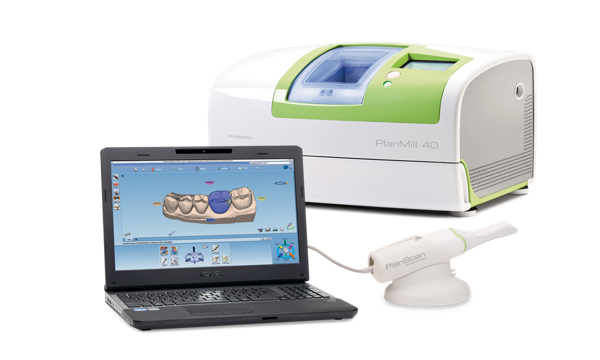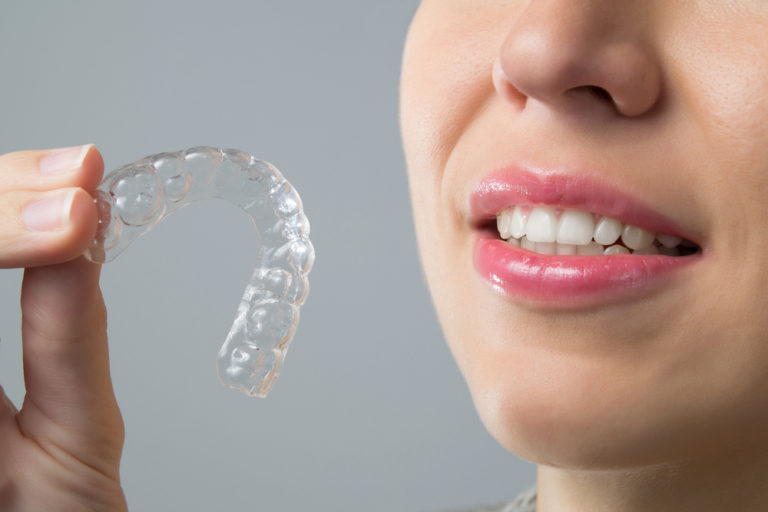Tooth extractions are routine dental procedures used to remove decayed, damaged or otherwise problematic teeth. Dentists usually make every effort to preserve natural teeth, although sometimes an extraction is necessary. Although the procedure is performed in a dentist’s or oral surgeon’s office, it is considered surgery. Depending on which teeth are removed, they may be replaced with a dental implant or another oral prosthetic.
There are several reasons why you could need a tooth extraction.
The most common cause of tooth extractions is severe tooth decay and cavities. However, many patients also undergo extractions for impacted teeth – particularly wisdom teeth. Other causes for extraction include advanced periodontal disease, cracked teeth, and teeth that are severely malformed. Although many circumstances that require extraction are unavoidable, some could be prevented with regular visits to the dentist for exams and cleanings.
Common Symptoms Indicating the Need for Tooth Extractions
Tooth extractions may be necessary for various reasons, including:
- Severe Decay: When tooth decay is so extensive that it can’t be treated with fillings or crowns.
- Gum Disease: Advanced gum disease can cause teeth to become loose and require removal.
- Impacted Wisdom Teeth: Wisdom teeth that don’t have enough space to erupt properly often need extraction.
- Orthodontic Treatment: Sometimes, extractions are part of orthodontic treatment plans to create space for tooth alignment.
Why Tooth Extractions are Needed
Tooth extractions are essential because they:
- Prevent Infection: Extracting a severely infected tooth can prevent the spread of infection to nearby teeth.
- Relieve Pain: Teeth that cause chronic pain or discomfort can be removed to improve your quality of life.
- Maintain Oral Health: Removing damaged or decayed teeth can help maintain overall oral health.
Treatment Process
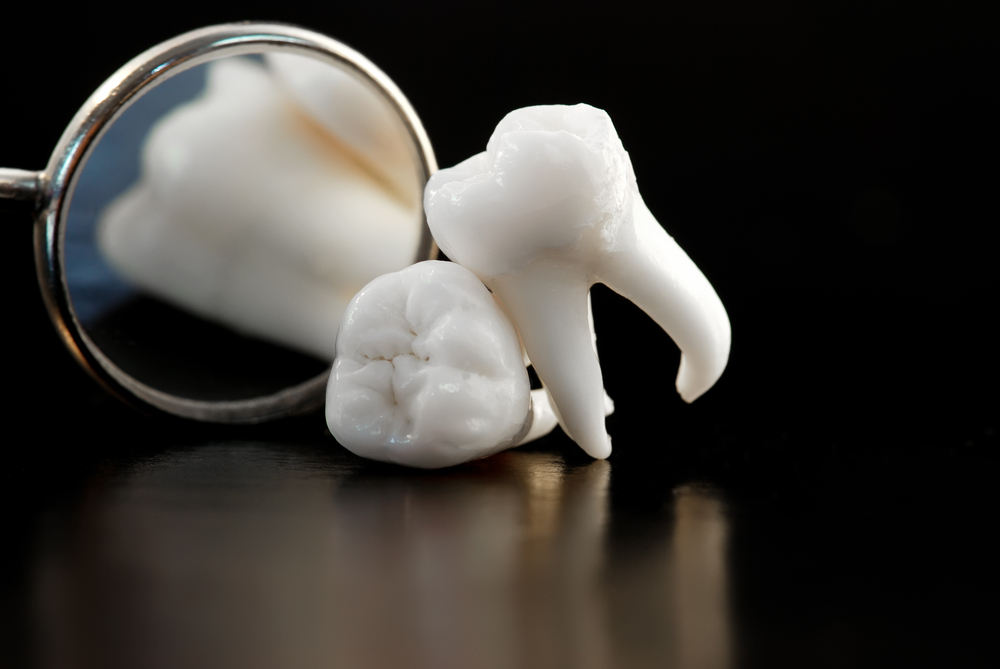
At Fedorciw, Massoumi & Kolbig, our tooth extraction process is designed for your comfort and safety:
- Evaluation: We assess your dental condition and discuss the need for extraction.
- Preparation: Before the extraction, we may administer local anesthesia to numb the area.
- Extraction: Using specialized instruments, we carefully remove the tooth.
- Aftercare: We provide post-extraction care instructions to ensure a smooth recovery.
- Follow-up: We schedule follow-up appointments to monitor your healing progress.
Prevention
While some extractions are necessary, you can prevent tooth problems by:
- Practicing good oral hygiene.
- Attending regular dental check-ups.
- Addressing dental issues promptly.
Outlook
The outlook after a tooth extraction is positive. With proper care, any discomfort or swelling should subside within a few days, and you can resume your normal activities.
Frequently Asked Questions
Do I need a tooth extraction?
Only your dentist can tell you if you need a tooth extraction. However, you may be a candidate for the procedure if one or more of your teeth are decayed so severely that a filling or others restoration is not a possibility for treatment.
What should I expect during my tooth extraction appointment?
If you and your dentist decide to extract one or more teeth, you will be scheduled to return for oral surgery at a later date. You will be given a local anesthetic to prevent pain during the procedure, and you may be prescribed medications to help manage pain in the hours following your extraction. Depending on the nature of your extraction and other factors, such as whether your teeth are impacted, you may also be sedated or given general anesthesia during your procedure.
What type of post-treatment care will I need to follow?
Post-operative care following a tooth extraction is essential for healing and preventing complications. You will be instructed to avoid certain foods and also keep the surgical site clean at all times. If you are prescribed an antibiotic, it is important that you complete the course of treatment to prevent infection. Finally, you may be advised to avoid smoking or drinking through a straw, as doing so may delay the healing process and cause a condition known as ‘dry socket.’
Contact Us for Expert Dental Care
If you believe you require tooth extractions or have any concerns about your dental health, please contact Fedorciw, Massoumi & Kolbig at 860-635-4666. Our skilled team is here to provide you with top-quality dental care and guidance.


